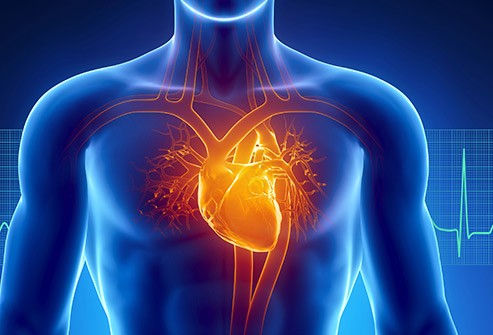Heart disease is a very serious issue. In fact, it is the single biggest cause of death in the world. In the United States, there is no doubt that it is the most common public health problem. The worst part is that in many cases, heart disease can be preventable. Poor diet and poor lifestyle are two of the biggest culprits behind developing heart disease. Both of these areas are something entirely within our own control. A frustrating aspect of heart disease is also unclear research. Even if you are determined enough to find out what to do, to avoid developing heart issues – the research is anything but clear.
Some research suggests that high cholesterol, blood sugar, obesity, fat, or inflammation are the root causes of heart disease. Ever since the 1950s, when Ancel Keys falsely popularized the notion that dietary fat was bad – Americans have been obsessed with low fat foods. Unfortunately, this has had the opposite effect on heart disease numbers – they’ve actually skyrocketed since Americans started avoiding dietary fat.
This negative shift is largely due to a huge increase in sugar intake. Excess sugar consumption is actually much closer to the root cause of developing a number of metabolic conditions. As the fat has gone down, the sugar has gone up – way up. Interestingly, the research shows that a high fat, low carb approach actually reverses a lot of the worst risks for developing heart disease. Insulin resistance, type 2 diabetes, high blood pressure, poor triglyceride levels, and too much body fat – these all may be improved by going keto. Without further adieu, here is the vital information you need to know about keto and heart disease.
Heart Disease – What is It?

Heart disease is actually the single biggest cause of death in this country, with over 50% of all fatalities caused by coronary heart disease. This is a staggering and frightening statistic, and it should be alarming to all of us. In a time when we have more advances in medicine than ever before – we actually are seeing rates of heart disease rapidly climb. Why is this? For starters, heart disease is not always easily detectable. Heart disease starts with a buildup of plaque, which clogs your arteries. This is problematic because your arteries send nutrients, oxygen and blood – to critical parts of your body. This includes your heart.
Similar to how plaque builds up on your teeth, you do not want plaque building up in your arteries. It is a different type of plaque though, which is made up of calcium, fat, cholesterol, and other elements. Over time, the plaques will continue to grow, if a poor diet and lifestyle is not improved. Through atherosclerosis, plaques may begin to actually block your blood flow, including the blood that needs to get to your heart. As you may have guessed, this is quite alarming, as eventually your heart begins to get weaker. This can lead to heart failure, where your heart can literally no longer pump blood normally. If the blood to your heart is blocked, you are at risk for developing a heart attack. Frustratingly, for a long time dietary fat was considered one of the risk factors for developing heart disease. But the research shows that this is just not true.
Heart Disease and Cholesterol
Cholesterol and heart disease have been anecdotally linked for a long time. After over 50 years of the two being inextricably linked, it is a cliché to assume that cholesterol and heart disease are one and the same. The common advice has been that if you simply replace saturated fat with unsaturated fat, you will lower your cholesterol. Therefore, you would also (hypothetically) lower your risk of developing heart disease. This is not true, for a variety of reasons. For starters, the idea that saturated fat (like the kind found in butter or meat) causes cholesterol problems – is just not true. Replacing these fats with unsaturated fats (like vegetable oil) – will not solve your cholesterol issues.
Essentially, the research and data with heart disease and cholesterol has been very poorly understood and misrepresented. This has gone on for at least 60-70 years. As science has advanced (along with obesity rates) there is actually a much better understanding of the issue. On a basic level, there are two different forms of cholesterol. LDL (commonly referred to as the bad cholesterol), and HDL (commonly referred to as the good cholesterol). Scientists now understand that the size of the cholesterol particles, is a much more significant factor in the development of heart disease. Just saying you have high LDL levels (the ‘bad’ cholesterol) – is not an accurate representation of what your cholesterol risk really is.
What needs to be understood by the populace at large, is that there is both good and bad LDL. There is not just one, which is where 90% of the confusion about heart disease and cholesterol comes from. Smaller, denser LDL is much more strongly correlated with heart disease. Large and fluffy LDL particles do not seem to cause nearly the same level of issue. Scientists believe this is because smaller LDL particles are more likely to wedge themselves into your arterial walls, which in turn causes greater plaque buildup. This makes perfect sense, and explains the rise in heart disease, since higher sugar diets lead to inflammation. Inflammation is correlated with the development of heart disease, and it is also woefully unaddressed in the modern world.
What is the best way to make sure your LDL particles are large and fluffy, not small and dense? Interestingly, research has shown that lowering your sugar intake and consuming healthy fats (exactly as in a ketogenic diet) – is one of the best ways to impact your LDL particle size. In fact, the research shows that a keto diet improves the count of your large LDL particles, as well.
Does the Keto Diet Lead to Heart Disease?

While the science points elsewhere, the question of the keto diet causing heart disease must be addressed, since this myth is still so widely parroted. As mentioned, dietary fat and heart disease are not directly linked, which is where the root of this claim originated. It all leads back to one study, which showed a correlation between saturated fat intake and heart disease. But correlation is not causation, and the researchers did not control for other variables like smoking. Based on their original hypothesis, researchers then assumed that saturated fat was the harmful culprit, even though fat is necessary for the brain and body to function properly.
Unfortunately, even with little to no direct evidence, scientists still ran with this theory. They assumed that saturated fat led to increases in cholesterol, which must cause heart disease. Using this flawed logic, they assumed that if you stopped eating saturated fat, you would eradicate heart disease. Though their hearts may have been in the right place, it’s obvious to see why this is a flawed theory. In reality, other factors like smoking, alcohol consumption, and a lack of exercise were causing heart disease. The American Heart Association actually recommended that consumers stop eating most saturated fats. Unfortunately, healthy foods went out the window and were replaced with high carb options. This was actually worse than it sounds, as these products are almost all highly sugared, processed foods. High sugar became the norm, almost overnight. As you might guess, consuming a diet with way too much sugar for 60 years, did not lead to optimal health outcomes.
Unfortunately, it took much too long for scientists and nutritionists to recognize their mistake. From 1985 to 2005 the obesity rate in the United States doubled. Their low-fat approach clearly was having the opposite effect of what was intended.
How Does Keto Help Prevent the Development of Heart Disease?
There are essentially three ways that keto helps fight the development of coronary heart disease. First, it helps to lower inflammation levels throughout the body. Systemic inflammation has been tied to many harmful metabolic conditions, including obesity, diabetes, high blood pressure, and even cognitive decline. By lowering systemic inflammation, keto helps fight the problem of heart disease at its very root. Secondly, keto helps to greatly balance insulin levels, as well as lower overall blood sugar. These two factors being consistently high, are true ‘canaries in the coalmine’, as you are far more likely to develop heart disease if you have consistently high blood sugar and insulin. In fact, usually these two conditions lead to diabetes, which itself is tightly correlated with the development of heart disease. Lastly, a ketogenic approach is effective for weight loss, and works directly to combat the risk of further disease progression.
Final Verdict – Does a Keto Diet Cause or Prevent Heart Disease?
The truth is, there is no reliable scientific evidence that a low carb diet causes heart disease. In fact, the evidence that does exist actually suggests the opposite. A nutrient-dense ketogenic diet, which inherently avoids sugars and high-glycemic foods – helps to lessen inflammation and lowers the risk of developing small and dense LDL particles. Therefore, you are actually less likely to develop heart disease, than if you were to continue consuming a diet high in sugar and high in carbs.
The Best Way to Measure Your Ketones
Now that you know keto is the answer, you need to start tracking your progress. Until now, there has not been a convenient and reliable way to check your ketones throughout the day as ketone levels change. That’s why we invented the first and only clinically-backed ketone breath monitor. By simply breathing into our device, you will have a reliable measurement of your current ketone levels in just seconds. No more urine strips, no more pricking your finger – just a fast, easy and reliable breath test. You can bring our device with you to the office, take it to the gym – you can truly check your ketones anywhere. Unlike previous devices, which were often poorly made, unreliable, and not backed by clinical research – our ketone breath monitor is patent-pending deep lung sampling, a requirement for accuracy. This means no other device is legally allowed to use our exclusive technology. Whether you are brand new to keto and want a convenient and reliable way to check your ketone levels, or you’re an elite level biohacker – Biosense is the perfect way to measure your ketones.
You don’t need to worry about continually buying strips, continually pricking your finger – we have all you need, in just one device. One of our favorite features is the personalized insights you get with the device. Every time you measure, your results are graphed and stored, so you can easily track your progress. Until now, there has not been an easy and convenient way to check your ketone levels – which has made many people give up on the keto diet entirely. But that outcome is no longer necessary, as we’ve made a device that does all the work for you. Just simply take one breath into the device, and within seconds you’ll know your ketone level. Whether your goal is to burn fat, lose weight, or improve your blood sugar – we have the answer.
References:
McKeown N.M., Meigs J.B., Liu S., Saltzman E., Wilson P.W.F., Jacques P.F. Carbohydrate nutrition, insulin resistance, and the prevalence of the metabolic syndrome in the Framingham Offspring Cohort. Diabetes Care. 2004;27:538–546. doi: 10.2337/diacare.27.2.538.
Asrih M., Jornayvaz F.R. Diets and nonalcoholic fatty liver disease: The good and the bad. Clin. Nutr. 2014;33:186–190. doi: 10.1016/j.clnu.2013.11.003.
Volek J.S., Fernandez M.L., Feinman R.D., Phinney S.D. Dietary carbohydrate restriction induces a unique metabolic state positively affecting atherogenic dyslipidemia, fatty acid partitioning, and metabolic syndrome. Prog. Lipid Res. 2008;47:307–318. doi: 10.1016/j.plipres.2008.02.003.
Volek J.S., Phinney S.D., Forsythe C.E., Quann E.E., Wood R.J., Puglisi M.J., Kraemer W.J., Bibus D.M., Fernandez M.L., Feinman R.D. Carbohydrate restriction has a more favorable impact on the metabolic syndrome than a low fat diet. Lipids. 2009;44:297–309. doi: 10.1007/s11745-008-3274-2.
Volek J.S., Feinman R.D. Carbohydrate restriction improves the features of Metabolic Syndrome. Metabolic Syndrome may be defined by the response to carbohydrate restriction. Nutr. Metab. 2005;2:31. doi: 10.1186/1743-7075-2-31.
Atkins R.C. Dr Atkins’ Diet Revolution: The High Calorie Way to Stay Thin Forever. D. McKay Co.; New York, NY, USA: 1972.
Veech R.L. The therapeutic implications of ketone bodies: The effects of ketone bodies in pathological conditions: Ketosis, ketogenic diet, redox states, insulin resistance, and mitochondrial metabolism. Prostaglandins Leukot. Essent. Fat. Acids. 2004;70:309–319. doi: 10.1016/j.plefa.2003.09.007.
Kossoff E.H., Cervenka M.C., Henry B.J., Haney C.A., Turner Z. A decade of the modified Atkins diet (2003–2013): Results, insights, and future directions. Epilepsy Behav. 2013;29:437–442. doi: 10.1016/j.yebeh.2013.09.032.
Estruch R., Ros E., Salas-Salvadó J., Covas M.I., Corella D., Arós F., Gómez-Gracia E., Ruiz-Gutiérrez V., Fiol M., Lapetra J., et al. Primary Prevention of Cardiovascular Disease with a Mediterranean Diet Supplemented with Extra-Virgin Olive Oil or Nuts. N. Engl. J. Med. 2018;378:e34. doi: 10.1056/NEJMoa1800389.
Estruch R., Martínez-González M.A., Corella D., Salas-Salvadó J., Ruiz-Gutiérrez V., Covas M.I., Fiol M., Gómez-Gracia E., López-Sabater M.C., Vinyoles E., et al. Effects of a Mediterraneanstyle diet on cardiovascular risk factors: A randomized trial. Ann. Intern. Med. 2006;145:1–11. doi: 10.7326/0003-4819-145-1-200607040-00004.
Coulston AM, Liu GC, Reaven GM. Plasma glucose, insulin and lipid responses to high-carbohydrate low-fat diets in normal humans. Metabolism. 1983;32:52–6.
Chen YDI, Swami S, Skowronski R, Coulston AM, Reaven GM. Effects of variations in dietary fat and carbohydrate intake on postprandial lipemia in patients with non-insulin dependent diabetes mellitus. J Clin Endocrinol Metab. 1993;76:347–51.
Mitchell GA, Kassovska-Bratinova S, Boukaftane Y, et al. Medical aspects of ketone body metabolism. Clin Invest Med. 1995;18:193–216.
Koeslag JH. Post-exercise ketosis and the hormone response to exercise: A review. Med Sci Sports Exerc. 1982;14:327–34.
Winder WW, Baldwin KM, Holloszy JO. Exercise-induced increase in the capacity of rat skeletal muscle to oxidize ketones. Can J Physiol Pharmacol. 1975;53:86–91.
Yehuda S, Rabinovitz S, Mostofsky DI. Essential fatty acids are mediators of brain biochemistry and cognitive functions. J Neurosci Res. 1999;56:565–70.
Amiel SA. Organ fuel selection: Brain. Proc Nutr Soc. 1995;54:151–5.
Singhi PD. Newer antiepileptic drugs and non surgical approaches in epilepsy. Indian J Pediatr. 2000;67:S92–8.
Janigro D. Blood-brain barrier, ion homeostatis and epilepsy: Possible implications towards the understanding of ketogenic diet mechanisms. Epilepsy Res. 1999;37:223–32.
Kossoff EH, Pyzik PL, McGrogan JR, Vining EP, Freeman JM. Efficacy of the ketogenic diet for infantile spasms. Pediatrics. 2002;109:780–3.
El-Mallakh RS, Paskitti ME. The ketogenic diet may have mood-stabilizing properties. Med Hypotheses. 2001;57:724–6.
Golay A, DeFronzo RA, Ferrannini E, et al. Oxidative and non-oxidative glucose metabolism in non-obese type 2 (non-insulin dependent) diabetic patients. Diabetologia. 1988;31:585–91.
Defronzo RA, Simonson D, Ferrannini E. Hepatic and peripheral insulin resistance: A common feature of type 2 (non-insulin-dependent) and type 1 (insulin-dependent) diabetes mellitus. Diabetologia. 1982;23:313–9.
Defronzo RA, Diebert D, Hendler R, Felig P. Insulin sensitivity and insulin binding in maturity onset diabetes. J Clin Invest. 1979;63:939–46.
Pilkington TR, Rosenoer VM, Gainsborough H, Carey M. Diet and weight-reduction in the obese. Lancet. 1960;i:856–8.
Howard BV, Wylie-Rosett J. Sugar and cardiovascular disease: A statement for healthcare professionals from the Committee on Nutrition of the Council on Nutrition, Physical Activity, and Metabolism of the American Heart Association. Circulation. 2002;106:523–7. Erratum in 2003;107:2166.
Franceschi S, Favero A, Decarli A, et al. Intake of macronutrients and risk of breast cancer. Lancet. 1996;347:1351–6.
Liu S, Manson JE, Stantpfer MJ, et al. Dietary glycemic load assessed by food-frequency questionnaire in relation to plasma high-density-lipoprotein cholesterol and fasting plasma triacylglycerols in postmenopausal women. Am J Clin. 2001;73:560–6.
Gaziano JM, Hennekens CH, O’Donnell CJ, Breslow JL, Buring JE. Fasting triglycerides, high-density lipoprotein and risk of myocardial infarction. Circulation. 1997;96:2520–5.
Kreitzman SN. Factors influencing body composition during very-low-caloric diets. Am J Clin Nutr. 1992;56(l Suppl):217S–23S.
Cullingford TE, Eagles DA, Sato H. The ketogenic diet upregulates expression of the gene encoding the key ketogenic enzyme mitochondrial 3-hydroxy-3-methylglutaryl-CoA synthase in rat brain. Epilepsy Res. 2002;49:99–107.
Prentice AM. Manipulation of dietary fat and energy density and subsequent effects on substrate flux and food intake. Am J Clin Nutr. 1998;67(3 Suppl):535S–41S.
Foster GD, Wyatt HR, Hill JO, et al. A randomized trial of a low-carbohydrate diet for obesity. N Engl J Med. 2003;348:2082–90.
He K, Merchant A, Rimm EB, et al. Dietary fat intake and risk of stroke in male US healthcare professionals: 14 year prospective cohort study. BMJ. 2003;327:777–82.
Westman EC, Mavropoulos J, Yancy WS, Volek JS. A review of low-carbohydrate ketogenic diets. Curr Atheroscler Rep. 2003;5:476–83.
Petersen KF, Befroy D, Dufour S, et al. Mitochondrial dysfunction in the elderly: Possible role in insulin resistance. Science. 2003;300:1140–2.
Foster-Powell K, Holt SH, Brand-Miller JC. International table of glycemic index and glycemic load values: 2002. Am J Clin Nutr. 2002;76:5–56.
Leeds AR. Glycemic index and heart disease. Am J Clin Nutr. 2002;76:286S–9S.
Liu S, Willett WC, Stampfer MJ, et al. A prospective study of dietary glycaemic load, carbohydrate intake, and risk of coronary heart disease in US women. Am J Clin Nutr. 2000;71:1455–61.
Sims EA, Danford E, Jr, Horton ES, Bray GA, Glennon JA, Salans LB. Endocrine and metabolic effects of experimental obesity in man. Recent Prog Horm Res. 1973;29:457–96.
Hollenbeck B, Y-Di Chen, Reaven GM. A comparison of the relative effects of obesity and non-insulin dependent diabetes mellitus on in vivo insulin-stimulated glucose utilization. Diabetes. 1984;33:622–6.
Kolterman OG, Gray RS, Griffin J, et al. Receptor and postreceptor defects contribute to the insulin resistance in noninsulin-dependent diabetes mellitus. J Clin Invest. 1981;68:957–69.
Gresl TA, Colman RJ, Roecker EB, et al. Dietary restriction and glucose regulation in aging rhesus monkeys: A follow-up report at 8.5 yr. Am J Physiol Endocrinol Metab. 2001;281:E757–65.
Hansen BC, Bodkin NL. Primary prevention of diabetes mellitus by prevention of obesity in monkeys. Diabetes. 1993;42:1809–14.
Ziegler DR, Araujo E, Rotta LN, Perry ML, Goncalves CA. A ketogenic diet increases protein phosphorylation in brain slices of rats. J Nutr. 2002;132:483–7.
Groot PH, Van Stiphout WA, Krauss XH, et al. Postprandial lipoprotein metabolism in normolipidemic men with and without coronary artery disease. Arterioscler Thromb. 1991;11:653–62.
Patsch JR, Miesenbock G, Hopferweiser T, et al. Relation of triglyceride metabolism and coronary artery disease studies in the postprandial state. Arterioscler Thromb. 1992;12:1336–45.
Abbasi F, McLaughlin T, Lamendola C, et al. High carbohydrate diets, triglyceride-rich lipoproteins and coronary heart disease risk. Am J Cardiol. 2000;85:45–8.
Chen YD, Hollenbeck CB, Reaven GM, Coulston AM, Zhou MY. Why do low-fat high-carbohydrate diets accentuate postprandial lipemia in patients with NIDDM? Diabetes Care. 1995;18:10–6.
Gardner CD, Kraemer HC. Monosaturated versus polyunsaturated dietary fat and serum lipids and lipoproteins. Arterioscler Thromb Vasc Biol. 1995;15:1917–25.
Jeppesen J, Schaaf P, Jones C, Zhoue MY, Chen YD, Reaven GM. Effects of low-fat, high-carbohydrate diets on risk factors for ischemic heart disease in post-menopausal women. Am J Clin Nutr. 1997;65:1027–33.
Mensink RP, Katan MN. Effect of dietary fatty acids on serum lipids and lipoproteins. Arterioscler Thromb. 1992;12:911–9.[/showhide]



